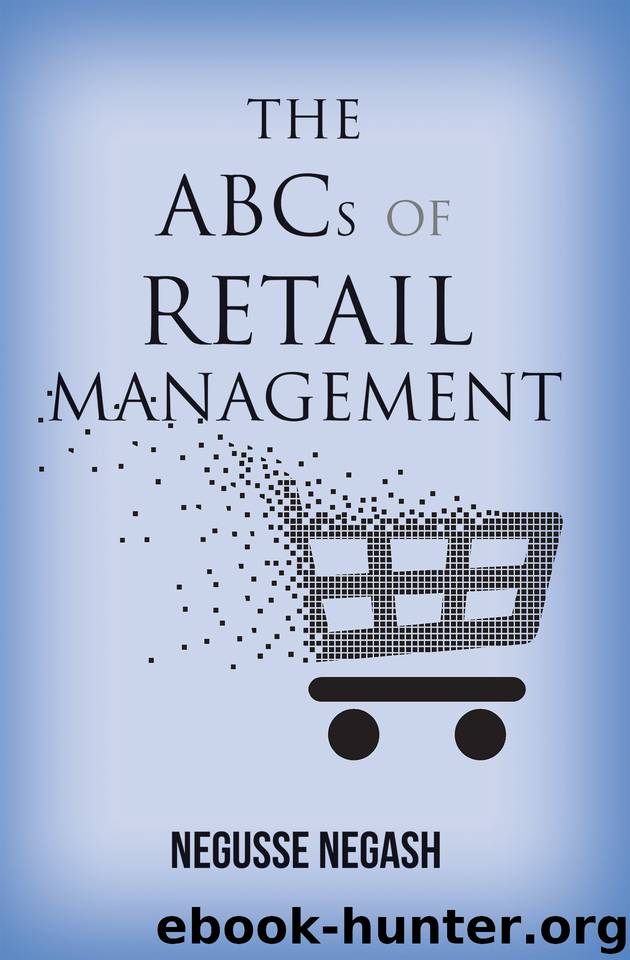The ABCs of Retail Management: The Handbook for Retail Store Executives, Managers, and Small Business Owners by Negash Negusse

Author:Negash, Negusse [Negash, Negusse]
Language: eng
Format: epub
Publisher: Mountain Arbor Press
Published: 2017-09-07T16:00:00+00:00
PRICE CHANGES
Price change has a direct influence in the store’s loss or gain game. As manufacturers increase or reduce their selling price to the retail industry, retailers are forced to raise or reduce their prices to the consumer.
This price change happens several times a year depending on the economic hardship or ease the manufacturer goes through. If the manufacturers increase their sales price—for instance, if a bottle of shampoo goes up from three to four dollars—likewise the store’s sales price must go up to reflect the change.
For instance, at 30 percent markup:
$3.00 x 1.3 = $3.90
Our new sales price
($4.00 x 1.3) will be $5.20.
If this change is not implemented on a timely basis, then the stores will sustain remarkable profit loss. As a rule of thumb, corporate offices should immediately communicate the price changes to the stores, who should execute the change within twenty-four hours to reduce the impact of the loss.
Individual stores like the convenience stores and liquor stores should revise their invoices on a daily basis as soon as they receive the product from suppliers and adjust their markup accordingly. When executing price changes, the change should be reflected in both the item and the shelf or display rack where the merchandise is displayed. Likewise, if the manufacturers reduce their price, the retail stores must also reduce the sales price for the products. Failing to reduce the price or even delaying to lower the price may cost the stores, as customers will be buying their products from stores that have already reduced their price. In some corporate-owned stores, failure to execute price changes on a timely basis is a strict audit procedure that counts against the store manager’s performance.
Download
This site does not store any files on its server. We only index and link to content provided by other sites. Please contact the content providers to delete copyright contents if any and email us, we'll remove relevant links or contents immediately.
Hit Refresh by Satya Nadella(9115)
The Compound Effect by Darren Hardy(8918)
Change Your Questions, Change Your Life by Marilee Adams(7731)
Nudge - Improving Decisions about Health, Wealth, and Happiness by Thaler Sunstein(7689)
The Black Swan by Nassim Nicholas Taleb(7097)
Deep Work by Cal Newport(7054)
Rich Dad Poor Dad by Robert T. Kiyosaki(6590)
Daring Greatly by Brene Brown(6500)
Principles: Life and Work by Ray Dalio(6400)
Playing to Win_ How Strategy Really Works by A.G. Lafley & Roger L. Martin(6202)
Man-made Catastrophes and Risk Information Concealment by Dmitry Chernov & Didier Sornette(5993)
Digital Minimalism by Cal Newport;(5743)
Big Magic: Creative Living Beyond Fear by Elizabeth Gilbert(5739)
The Myth of the Strong Leader by Archie Brown(5489)
The Slight Edge by Jeff Olson(5405)
Discipline Equals Freedom by Jocko Willink(5371)
The Motivation Myth by Jeff Haden(5199)
The Laws of Human Nature by Robert Greene(5154)
Stone's Rules by Roger Stone(5073)
